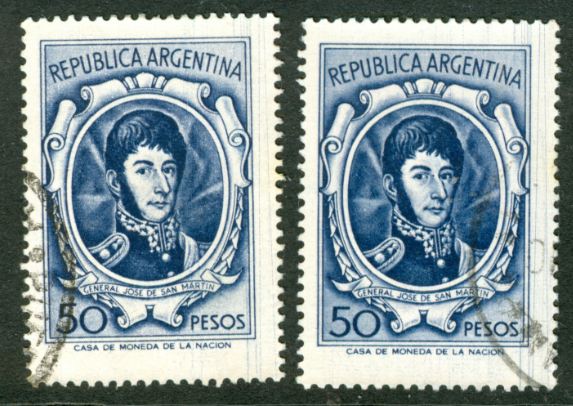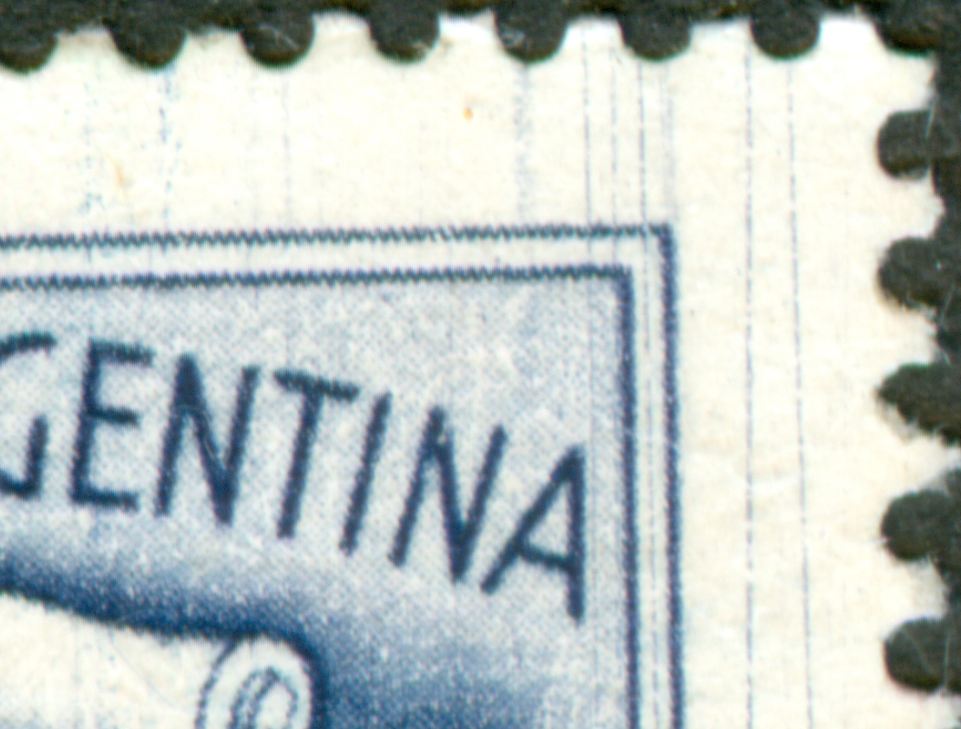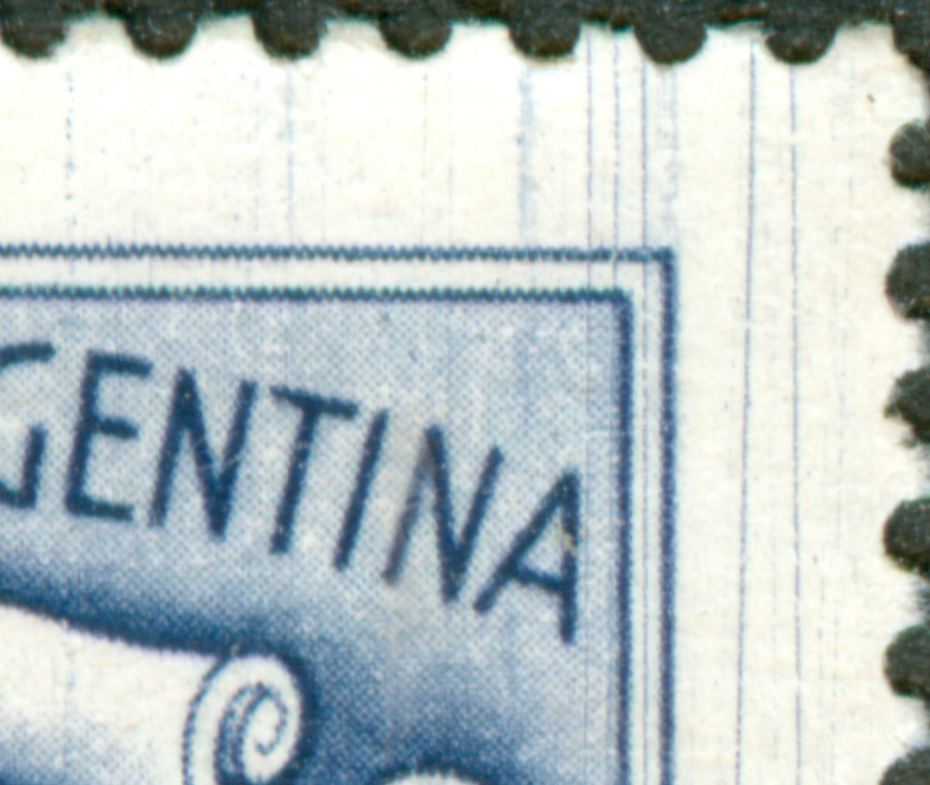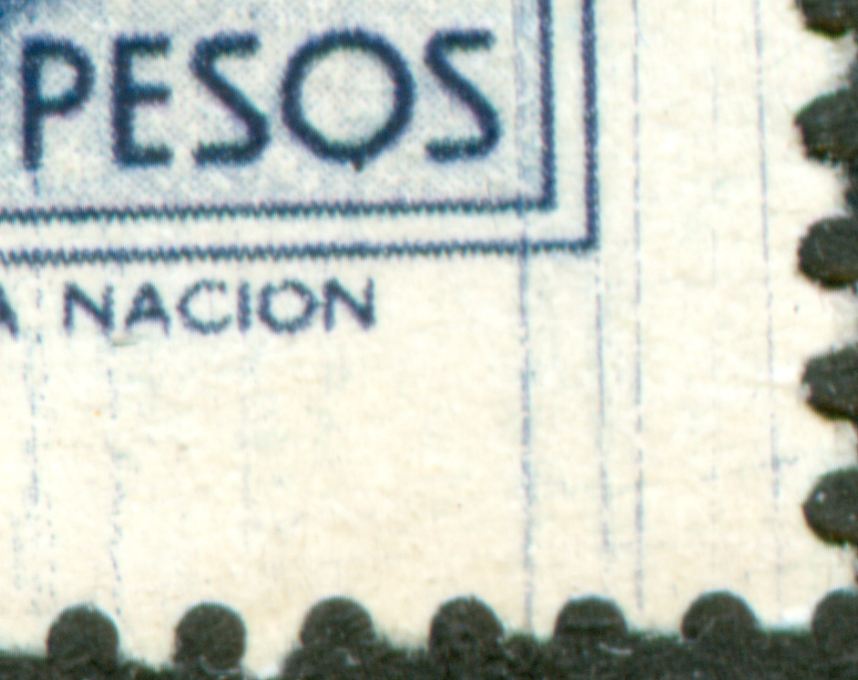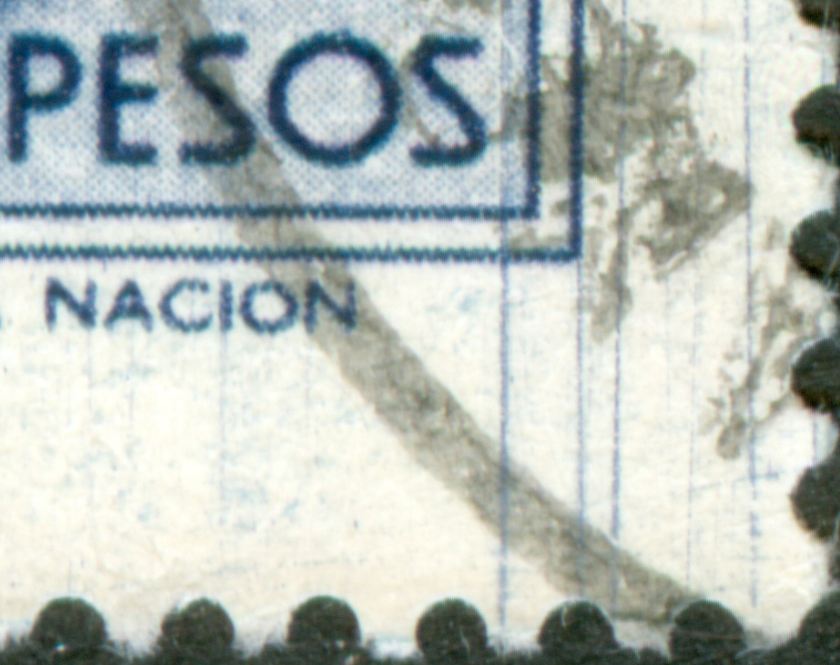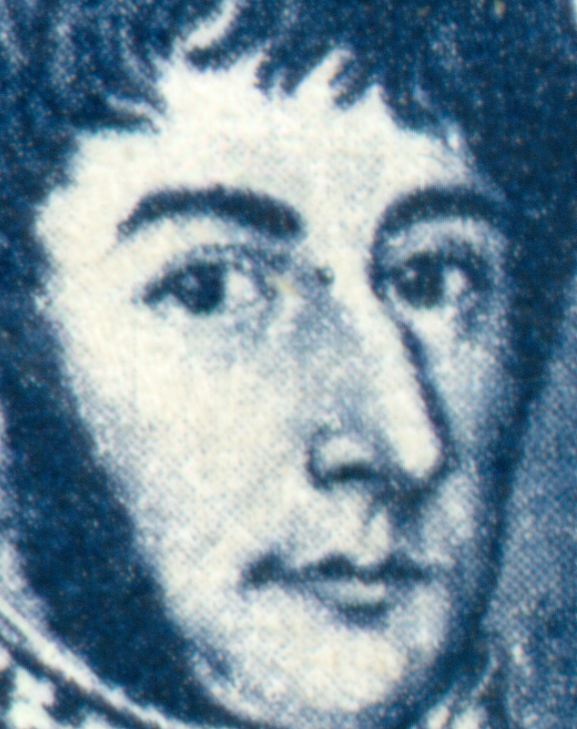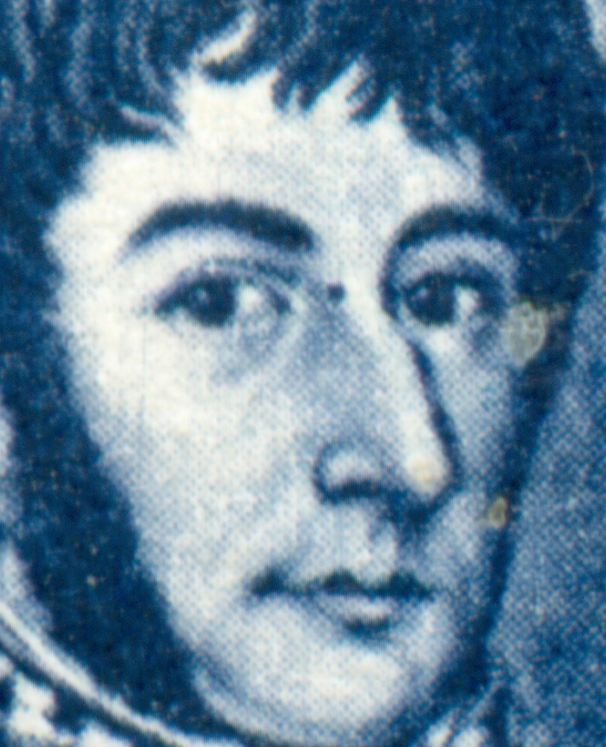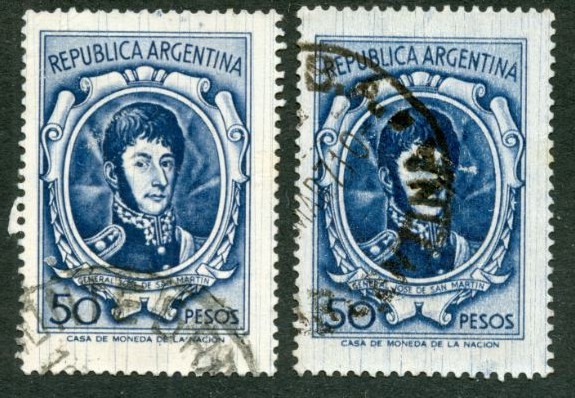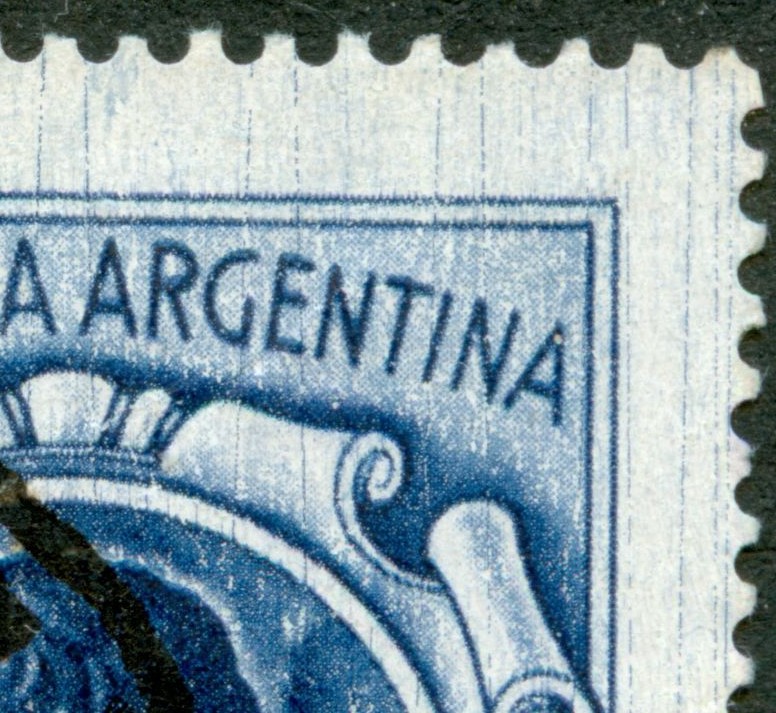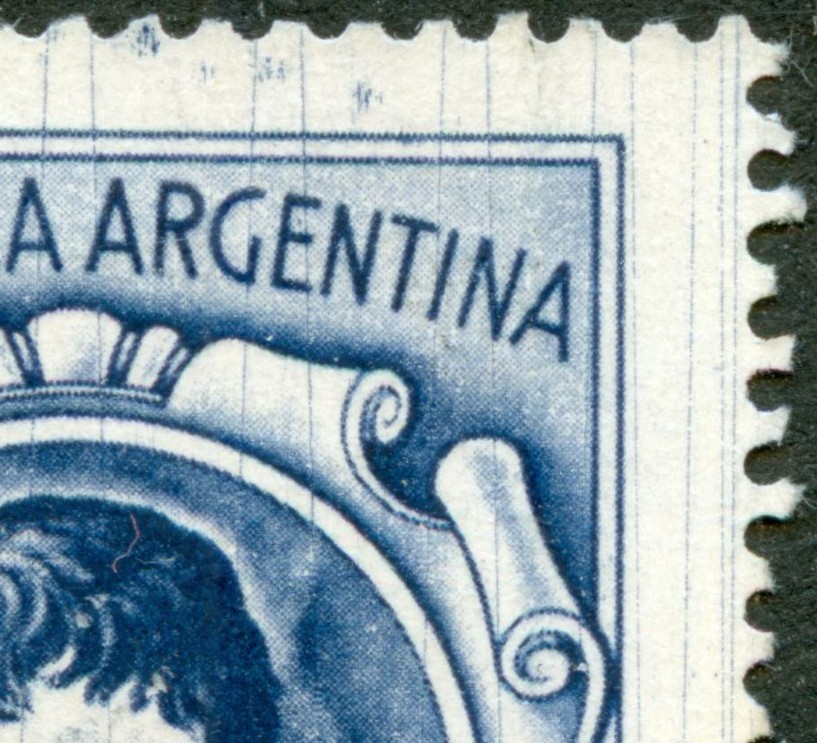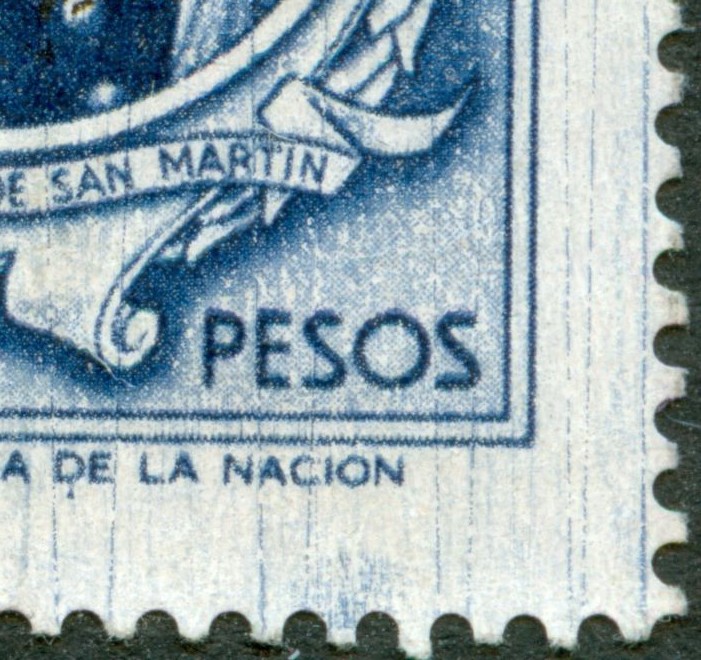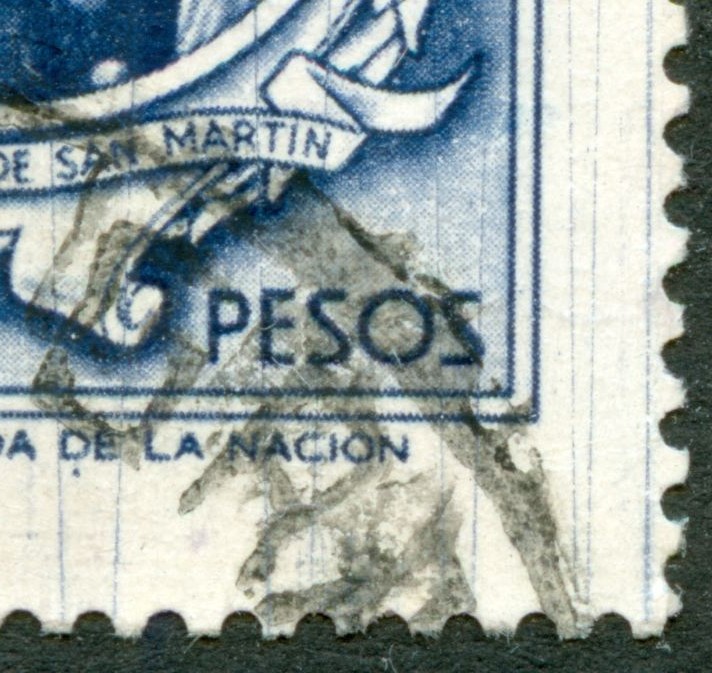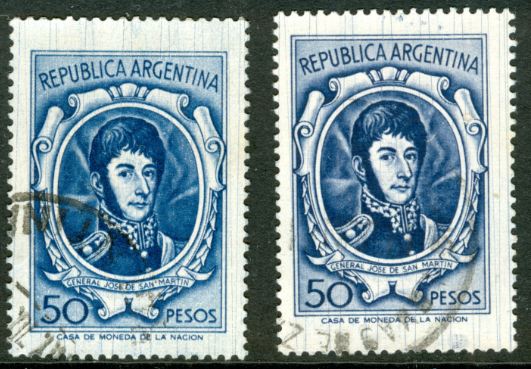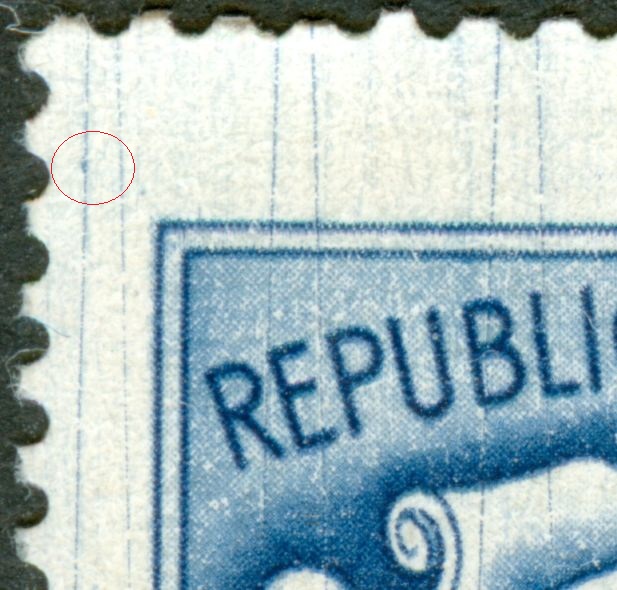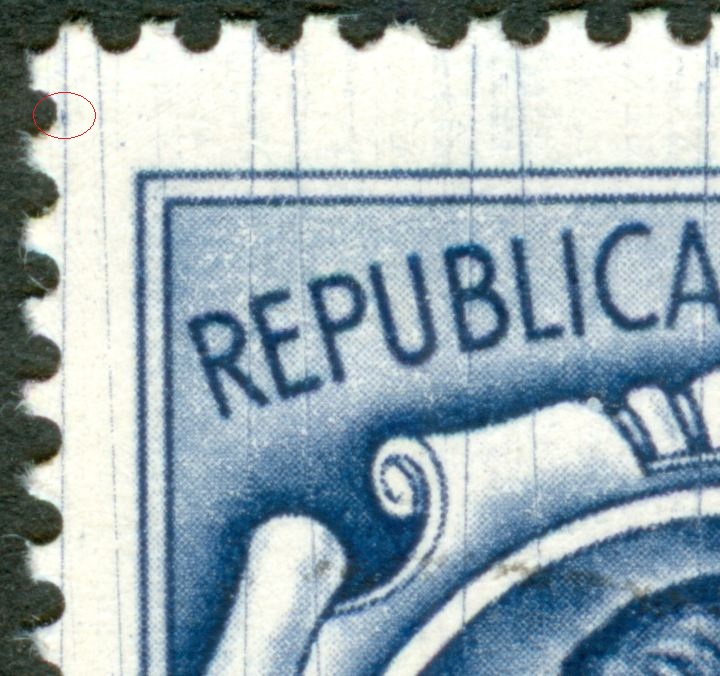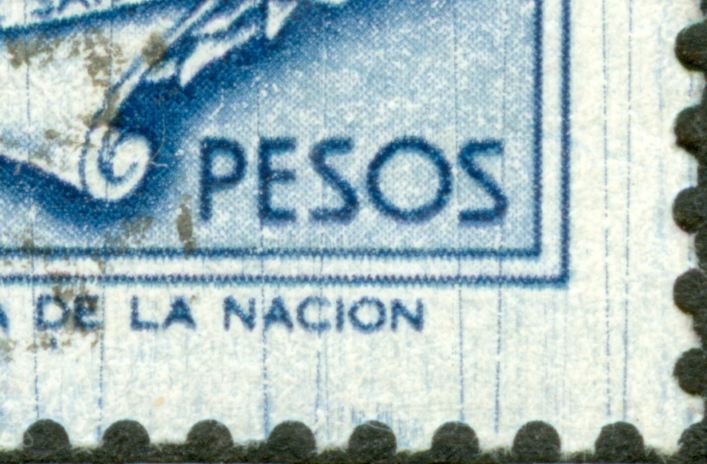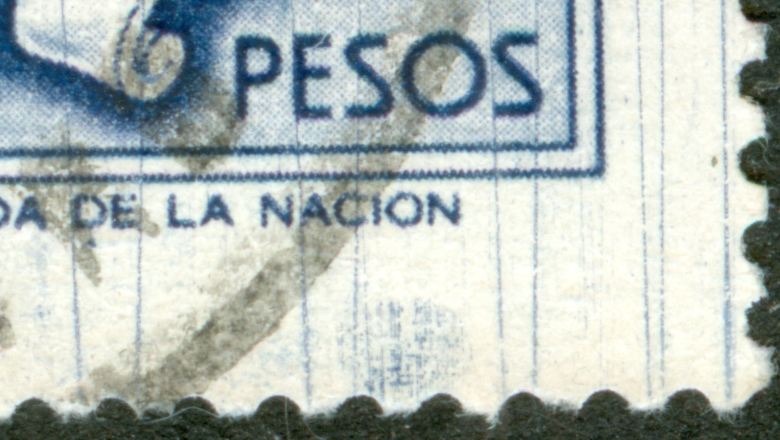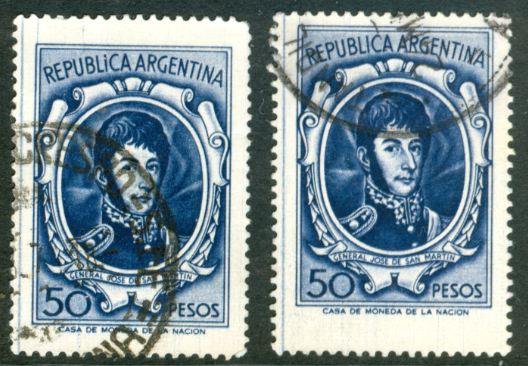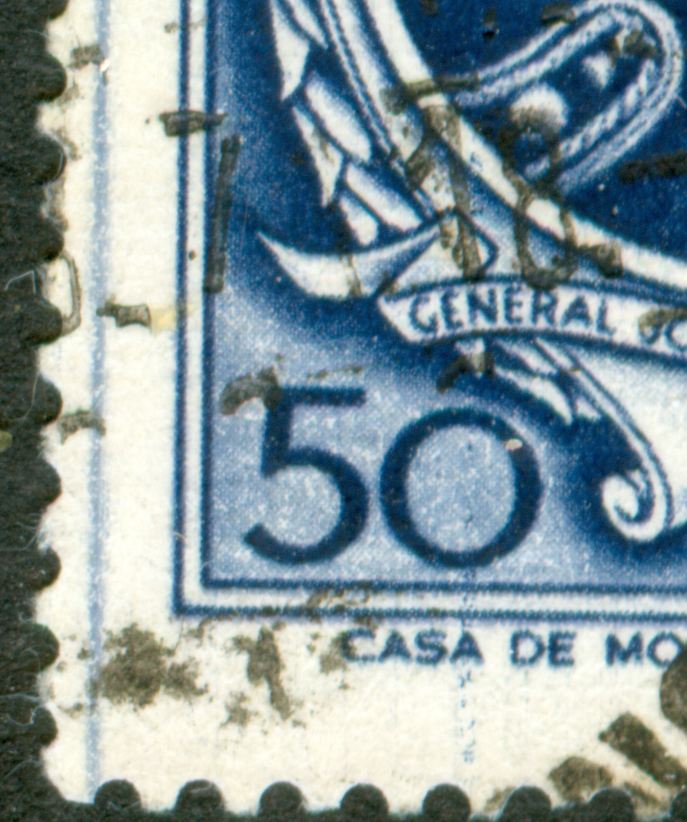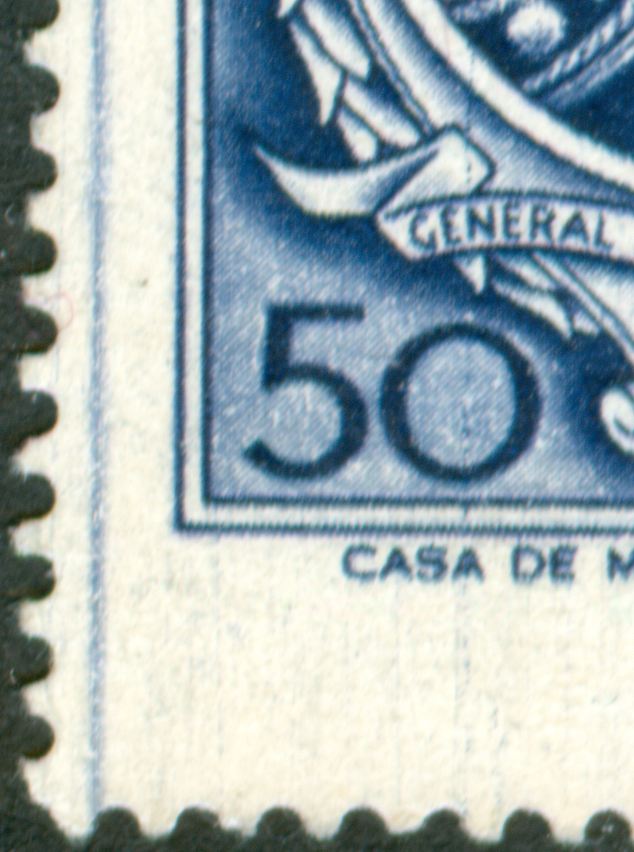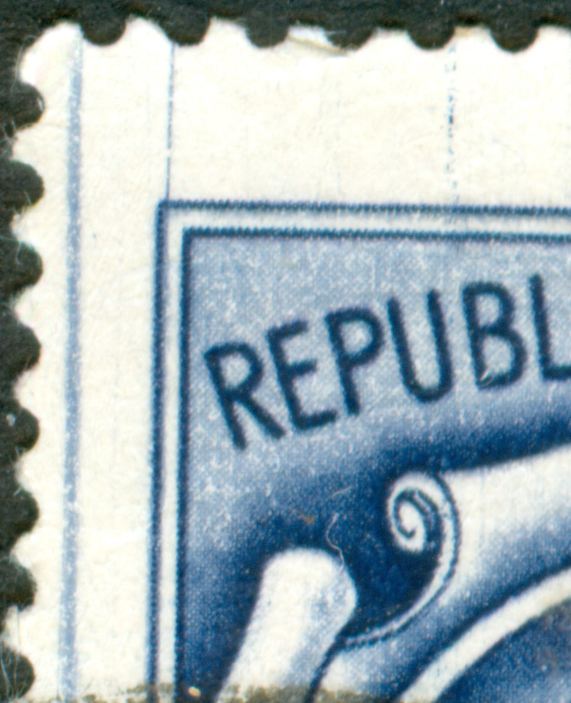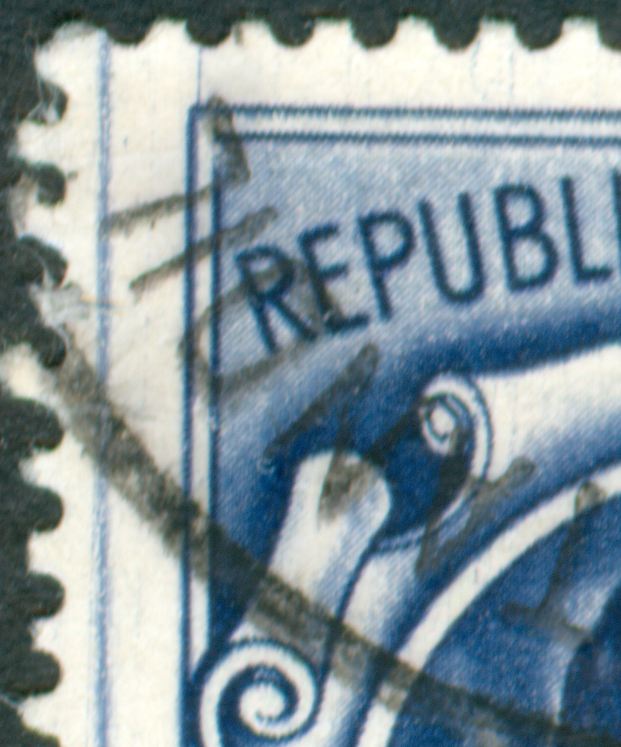Página 1 de 1
All about the 50p JSM in photogravure narrow size....
Publicado: 25 Nov 2012 11:10
por Rein
In the case of the 50p Jose de San Martin mentioning sizes does not make sense when referring to the actual design size! And not referring to the printing presses makes it even more difficult to understand!
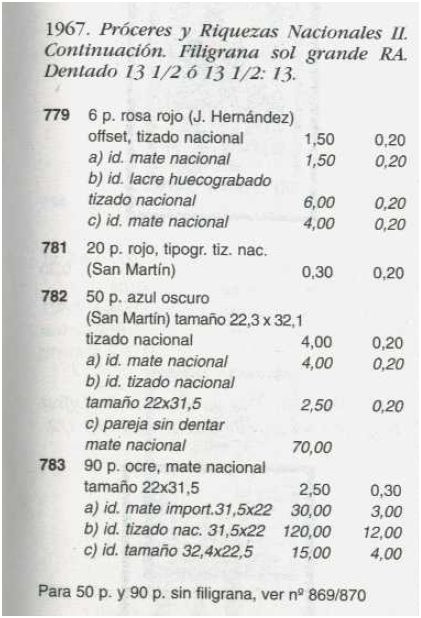
Having a good look at both versions - the shorter one and the longer one, you will see that the latter one has a much shorter size of design!
The description in the catalogue is OK, but wouldn't it be better to mention the generic change of perforation as well???
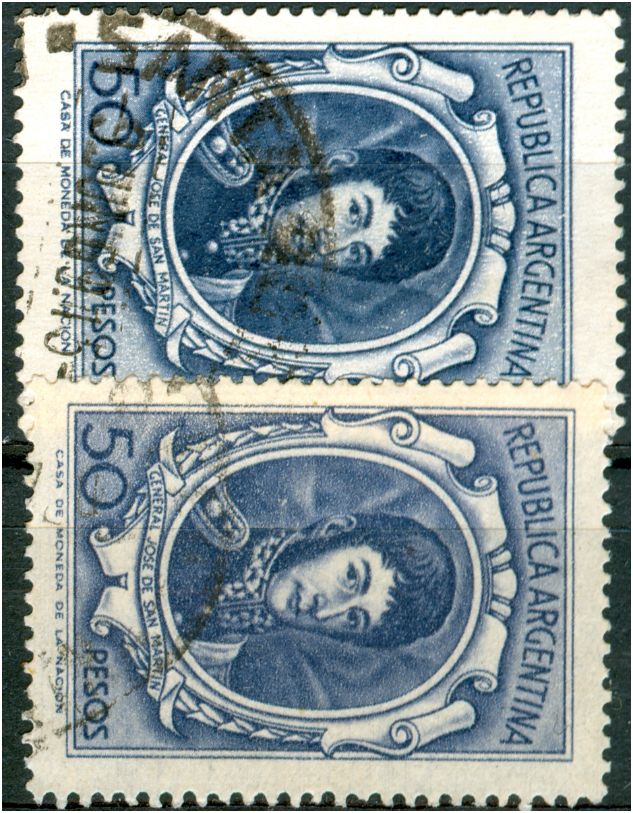
And why not mention which perforation goes with which stamp - 13 1/2 or 13 1/2:13?
to be continued ..
Re: All about the 50p JSM in photogravure narrow size....
Publicado: 25 Nov 2012 11:16
por Rein
Re: All about the 50p JSM in photogravure narrow size....
Publicado: 25 Nov 2012 11:17
por Rein
Re: All about the 50p JSM in photogravure narrow size....
Publicado: 25 Nov 2012 11:18
por Rein
Re: All about the 50p JSM in photogravure narrow size....
Publicado: 25 Nov 2012 11:18
por Rein
Re: All about the 50p JSM in photogravure narrow size....
Publicado: 26 Nov 2012 20:49
por Otin
Rein:
According to printing theory concerning photogravure, doctor´s blade should never be in touch with the same point on the engraved cylynder, that´s why it continuosly moves from left to right and viceversa. From here it should be deducted that
lines produced by nicks in the blade edge should produce leaning lines as those appearing on the 50p San Martin we are discussing. If that is so, why then those lines paralell lines to printing direction, for instance, just mention an oustanding example, the overall Mexican stamp shown in a recent post'? I don´t have an explanation for such a phenomenon, do you?
José
Re: All about the 50p JSM in photogravure narrow size....
Publicado: 27 Nov 2012 07:26
por Rein
Otin escribió:Rein:
According to printing theory concerning photogravure, doctor´s blade should never be in touch with the same point on the engraved cylynder, that´s why it continuosly moves from left to right and viceversa. From here it should be deducted that
lines produced by nicks in the blade edge should produce leaning lines as those appearing on the 50p San Martin we are discussing. If that is so, why then those lines paralell lines to printing direction, for instance, just mention an oustanding example, the overall Mexican stamp shown in a recent post'? I don´t have an explanation for such a phenomenon, do you?
José
José,
it would be best if you could ask someone in de Casa de Moneda whilst there may still be somebody with some knowledge of photogravure printing! This knowledge is dying-out quickly as everywhere photogravure gets replaced by offset-litho!
In Haarlem - JESSP = Joh. Enschedé - one of their two Goebel rotaries was removed this year, the second one will be thrown out in 2013! So no photogravure press left after their first introduction in 1924!!!
saludos, Rein
Re: All about the 50p JSM in photogravure narrow size....
Publicado: 27 Nov 2012 15:18
por filatemusico
Otin escribió:Rein:
According to printing theory concerning photogravure, doctor´s blade should never be in touch with the same point on the engraved cylynder, that´s why it continuosly moves from left to right and viceversa. From here it should be deducted that
lines produced by nicks in the blade edge should produce leaning lines as those appearing on the 50p San Martin we are discussing. If that is so, why then those lines paralell lines to printing direction, for instance, just mention an oustanding example, the overall Mexican stamp shown in a recent post'? I don´t have an explanation for such a phenomenon, do you?
José
José,
When the doctor blade is approaching the place where it is going to go back lines begin to straighten and be closer, this means that racleta begins to slow to start back, then in a short period of time line is parallel to printing direction i.e. the blade is stopped, immediately begins to start back then lines begin to be inclined toward the other side and accelerate i.e lines increase their distance.
About wider line I think this is no the case, I have no idea what made it.
Cuando la racleta va llegando al lugar donde ha de emprender el regreso las líneas comienzan a enderezarse y a juntarse es decir se empieza a frenar para emprender el regreso, entonces llega un pequeño lapso de tiempo que se mantiene vertical es decir se detiene, enseguida emprende el regreso y empieza a inclinarse al lado contrario y acelerar es decir la líneas comienzan a separarse.
De la línea más ancha no creo yo que éste sea el caso, no tengo idea que fue lo que causó esa linea.
Saludos
José Leal




